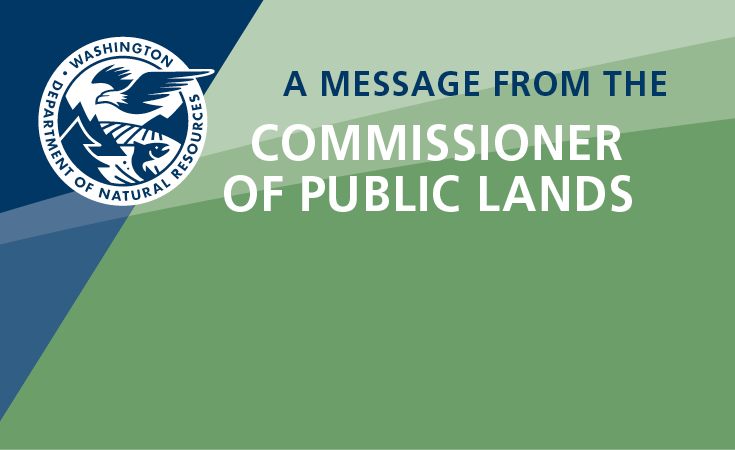Legislation to Remove Derelict Structures Would Promote Healthier Environment, Communities
News Date:
March 17, 2023
Legislation to remove derelict structures would promote healthier environment, communities
Commissioner of Public Lands Hilary Franz today championed cleaner, healthier waterfronts during a press conference highlighting the positive impacts of House Bill 1378.
The legislation would give the Department of Natural Resources (DNR) the authority to remove derelict aquatic structures like unused piers, pilings and decrepit marinas from Washington’s waterways. The House of Representatives passed the bill March 6 and its companion, Senate Bill 5433, passed days later.
Rep. Kristine Reeves, Sen. Ron Muzzall, Rep. Derek Kilmer, Tacoma Mayor Victoria Woodards and Makah Chairman Timothy Greene joined Franz in talking about the benefits of clean waterways.
“This important legislation will allow us to remove pollution from our environment, support endangered species, and return economic vitality to our waterfronts,” Franz said. “To create a healthier and safer waterfront, we need to remove derelict structures that impede salmon recovery and jeopardize the health and safety of our communities.”
The group spoke at Dickman Mill in Tacoma, one of the “Filthy Four” industrial areas that most threaten habitat and public safety. There are about 1,200 creosote pilings at Dickman Lumber Mill, which operated from the 1890s until 1974, and the estimated cleanup cost is more than $3.5 million.
The legislation would provide $19.75 million in capital funding to remove all the “Filthy Four,” create a formal program to remove large derelict structures from state-owned aquatic lands and allow local governments and nonprofits to use DNR’s expertise to get hazardous structures out of the state’s waterways.
About DNR: Ensuring Washington’s Aquatic Lands Remain Healthy and Productive
As stewards of more than 2.6 million acres of state-owned aquatic lands, we are responsible for ensuring protection of habitat and fostering public access and water-dependent activities for future generations. DNR generates revenue by selling the rights to harvest renewable resources like wild geoducks and other shellfish and from leasing and licensing state-owned aquatic lands.
That revenue is reinvested to manage and restore Washington's aquatic ecosystems; keep them free of derelict maritime equipment; protect their health and productivity, and fund local projects that ensure the public can enjoy our aquatic lands
###
MEDIA CONTACT
Communications Manager
360-902-1000


